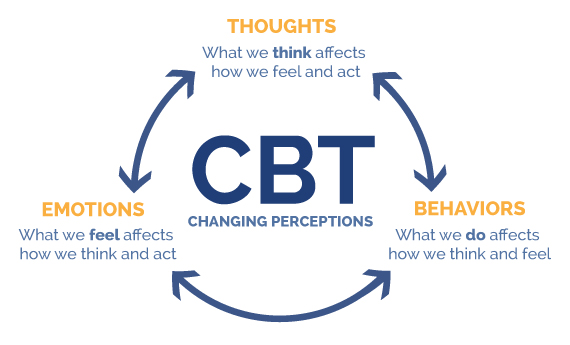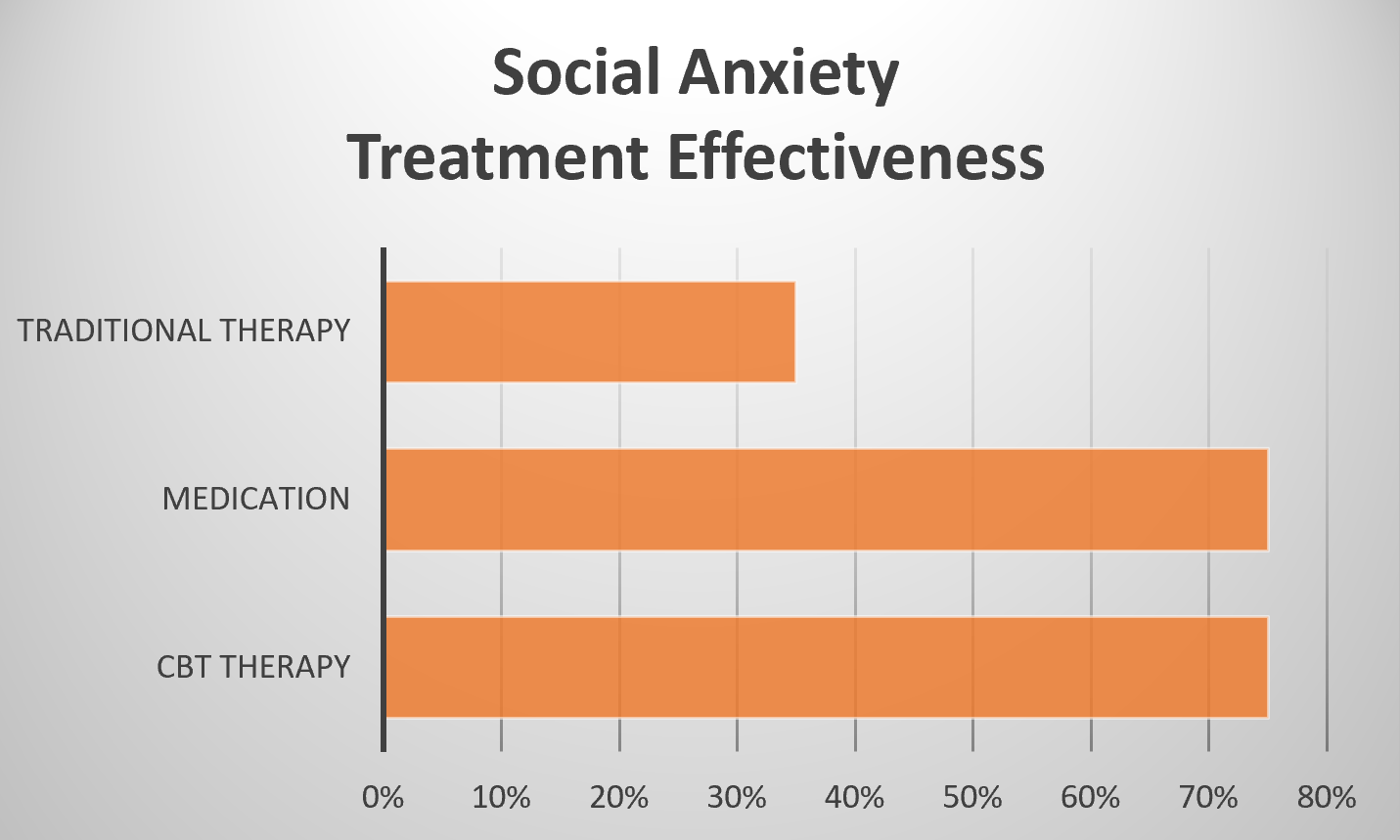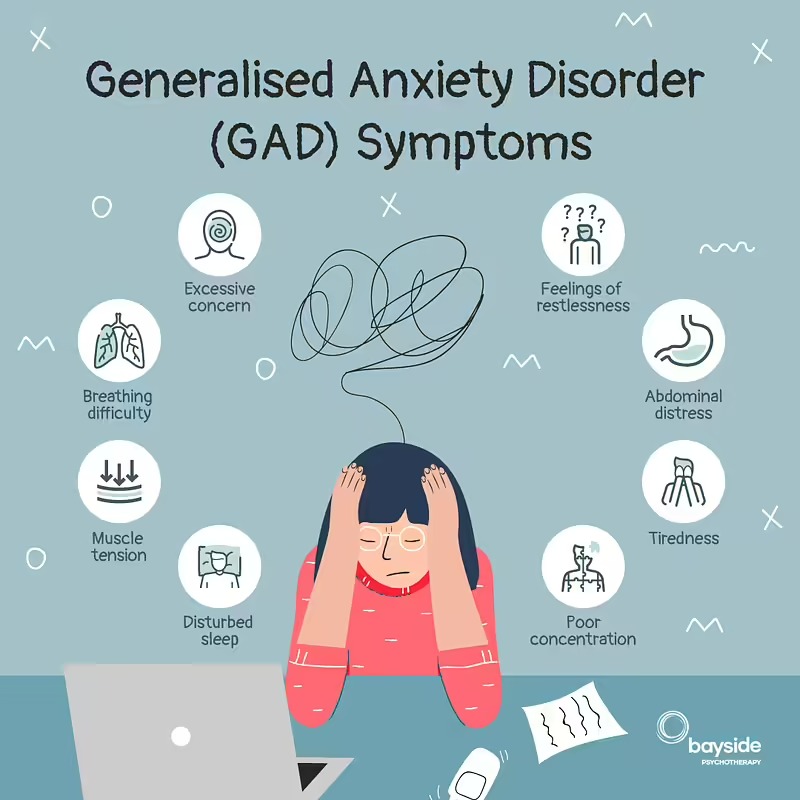Connect now for professional counselling for anxiety services
Checking Out Different Techniques in Therapy for Anxiousness Disorder for Long-term Change
When dealing with anxiety conditions, it's vital to check out a range of therapy methods. Each technique offers special understandings and devices to help you manage your signs and symptoms efficiently. You may find that integrating techniques can produce the most effective outcomes. Comprehending the nuances of these approaches is essential to cultivating long-term modification. What if the ideal combination could release a brand-new degree of psychological wellness for you?
Understanding Anxiety Disorders: A Quick Review
Anxiousness conditions, which impact countless people worldwide, can significantly impact day-to-day live. You may experience frustrating feelings of fear or stress that seem unmanageable. These feelings can result in physical signs and symptoms like an auto racing heart, sweating, or perhaps wooziness. Typical kinds of stress and anxiety conditions include generalized anxiety disorder, panic condition, and social anxiousness problem. Each has distinct indicators, yet they all share a tendency to disrupt your routine and relationships.Understanding the origin triggers of your anxiety is crucial. It might originate from genetics, brain chemistry, or life experiences. Recognizing your triggers can help you handle your actions better. It's essential to bear in mind that you're not the only one in this battle. Lots of people face similar challenges, and seeking help is a strong action toward feeling much better. By discovering anxiety disorders, you're already on the course to understanding and handling your condition a lot more efficiently.
Cognitive-Behavioral Treatment: Testing Negative Idea Patterns
In Cognitive-Behavioral Therapy, you'll start by recognizing the unfavorable idea triggers that add to your stress and anxiety. As soon as you acknowledge these thoughts, you'll service replacing them with even more positive alternatives. With each other, you'll construct reliable coping strategies to aid manage your anxiety in daily scenarios.
Recognizing Negative Thought Triggers

Identifying the certain triggers behind your unfavorable ideas can be important in taking care of anxiousness when you experience minutes of distress. Beginning by taking notice of situations that prompt feelings of worry or anxiety. Is it a crowded space, an upcoming target date, or a conversation with particular individuals? Write these instances in a journal. This will aid you recognize patterns in your reasoning. Likewise, notice physical sensations that accompany your negative ideas, like a racing heart or tightness in your upper body. By determining these triggers, you get insight into what's sustaining your stress and anxiety. Recognizing these links is the initial step in challenging those thoughts and ultimately gaining back control over your emotional reactions.
Changing Ideas With Positives
Testing negative thought patterns is an important step in changing your attitude and decreasing anxiousness. You might usually locate yourself caught in cycles of insecurity or devastating thinking. As opposed to allowing these ideas determine your sensations, technique changing them with reasonable options or positive affirmations. When you think, "I can not manage this," shift it to, "I can handle challenges one action at a time." This easy adjustment can substantially influence your emotion. Consistently identifying and countering these unfavorable ideas aids develop a much healthier internal dialogue. Keep in mind, it takes time and effort, yet regularly exercising this strategy can lead to long lasting adjustment, empowering you to encounter stress and anxiety with renewed self-confidence and durability.
Structure Coping Strategies With Each Other
Changing negative ideas is only the start of handling anxiety effectively. To develop lasting change, you need to build coping techniques that empower you. Cognitive-Behavioral Therapy (CBT) assists you recognize and challenge those purposeless idea patterns. Together, you and your counselor can discover just how these thoughts impact your feelings and behaviors.Start by creating sensible strategies, like journaling or mindfulness workouts, that enable you to confront anxiety head-on. When you encounter your fears gradually, you'll learn to react in different ways.

Mindfulness and Acceptance-Based Approaches: Cultivating Present-Moment Recognition
As you navigate the complexities of anxiety, incorporating mindfulness and acceptance-based techniques can considerably enhance your capacity to grow present-moment understanding. By concentrating on the right here and currently, you'll discover that you can observe your thoughts and sensations without judgment (Counseling services for anxiety). This practice assists you recognize your stress and anxiety without really feeling overwhelmed by it.Engaging in mindfulness exercises, such as deep breathing, body scans, or led meditations, enables you to ground on your own in your present experience. Acceptance-based techniques urge you to accept your emotions rather than battle against them. When you accept your sensations, they shed their power over you.Incorporating these practices right into your daily routine can change exactly how you react to stress and anxiety. You'll create durability and discover to navigate stressful scenarios with greater convenience. Ultimately, growing present-moment recognition lays the foundation for enduring adjustment, encouraging you to lead a more meeting life
Direct Exposure Therapy: Confronting Anxieties Slowly
Exposure treatment helps you face your fears in a steady method, making it much less overwhelming. You'll find out strategies to encounter anxiety-provoking circumstances step by action, while likewise constructing coping methods to handle your responses. This method equips you to take control and lower stress and anxiety over time.
Gradual Exposure Strategies

When encountering anxiousness, slowly confronting your concerns can be a powerful method to regain control. This strategy, called gradual direct exposure, includes slowly exposing on your own to the situations or things that trigger your stress and anxiety. Begin with less challenging scenarios and gradually function your method as much as even more difficult ones. For instance, if you hesitate of public speaking, you could start by speaking before a mirror, then progress to sharing ideas with a buddy, and eventually address a tiny team. Each step helps desensitize you to the fear, building your confidence with time. Bear in mind, it's necessary to rate on your own and commemorate tiny victories as you move via this procedure, reinforcing your capacity to manage anxiety efficiently.
Structure Coping Techniques
Building efficient coping techniques is important for managing anxiousness, specifically as you face your concerns slowly - Counseling services for anxiety. One effective approach is direct exposure treatment, where you begin by encountering your fears in a controlled manner. Begin with less intimidating situations and slowly work your method as much as even more tough scenarios. This gradual exposure assists desensitize you to anxiousness triggers, making them less overwhelming.Incorporate relaxation methods, such as deep breathing or mindfulness, to relax your mind throughout exposure. Track your progression, celebrating small triumphes along the road to boost your confidence. Remember, it's fine to take your time; the goal isn't perfection yet consistent enhancement. By building these approaches, you'll encourage yourself to browse stress and anxiety and embrace life more totally
Psychodynamic Treatment: Uncovering Origin Causes of Stress And Anxiety
Psychodynamic therapy checks out the subconscious mind, exposing the source of your anxiety. By examining your ideas, feelings, and past experiences, this technique aids you discover underlying disputes and unsolved concerns that might add to your existing stress and anxiety. You'll collaborate with a therapist to check out childhood experiences, connections, and psychological patterns that form your feedbacks today.As you acquire insight into these deeper layers of your mind, you'll begin to recognize exactly how previous events affect your present behavior. This understanding can bring about catharsis, enabling you to refine emotions you could have suppressed.Through the healing relationship, you can additionally determine protection systems that might have developed with time, using a clearer course to change. Eventually, psychodynamic therapy outfits you with the devices to address your anxiousness at its core, promoting long-term improvement in your emotional wellness.
Alternative and integrative Approaches: Integrating Techniques for Greater Efficiency
Incorporating different healing methods can improve your journey towards handling anxiety better. By integrating elements from cognitive-behavioral treatment, mindfulness methods, and all natural approaches, you can create a personalized method that resolves your special demands. You could utilize cognitive-behavioral techniques to test negative thought patterns while integrating mindfulness exercises to ground on your own in the present moment.Additionally, checking out alternative practices such as yoga exercise or reflection can advertise leisure and lower anxiety symptoms. This blend allows you to develop greater self-awareness and resilience.Experimenting with these varied approaches can aid you find what reverberates most with you. Remember, it's regarding finding a synergy that works, instead of sticking to a solitary method. This integrative technique not just provides immediate alleviation but also cultivates long-term abilities for handling stress and anxiety, equipping you to recover control over your life.
The Duty of Support Solutions: Structure Durability Via Connection
While it could appear that managing stress and anxiety is a singular journey, having a solid support group can play a vital duty in your resilience. Surrounding yourself with understanding buddies, family, or support system creates a secure room where you can freely share your feelings and experiences. You advise yourself that you're not alone in this struggle.These connections provide support and can give practical coping strategies that have actually worked for others when you link with others. It's likewise a chance to get point of view; good friends can assist you see circumstances differently, lowering feelings of isolation.Moreover, psychological assistance more info promotes a feeling of belonging, which can significantly alleviate anxiety symptoms. By leaning on your assistance system, you can construct strength and deal with challenges better. Keep in mind, getting to out for aid signifies strength, and it can make all the difference in your journey towards taking care of anxiety.
Often Asked Inquiries
What Are the Common Signs And Symptoms of Anxiety Problems?
You might experience uneasyness, fatigue, difficulty focusing, irritation, muscle stress, and sleep disturbances. Physical signs can consist of fast heartbeat, sweating, and shivering. Identifying these indications early can assist you look for suitable support and therapy.
How Much Time Does Treatment Usually Last for Anxiety Problems?
Therapy for anxiety conditions usually lasts anywhere from a few weeks to numerous months. It actually depends on your private demands, progression, and the methods your therapist utilizes to assist you handle your anxiousness efficiently.
Can Medication Be Utilized Alongside Treatment for Stress and anxiety?
Yes, medication can certainly be made use of together with therapy for anxiousness. Combining both approaches commonly enhances treatment performance, aiding you manage symptoms while discovering underlying issues with therapy (Counseling services for anxiety). Always consult your doctor for personalized suggestions
Exist Self-Help Techniques for Managing Anxiety?
Yes, there are numerous self-help techniques for taking care of stress and anxiety. You can exercise mindfulness, take part in normal exercise, keep a balanced diet regimen, develop a routine, and make use of deep breathing methods to help in reducing anxiety signs properly.
Just how Do I Know if I Required Professional Help for Stress And Anxiety?
